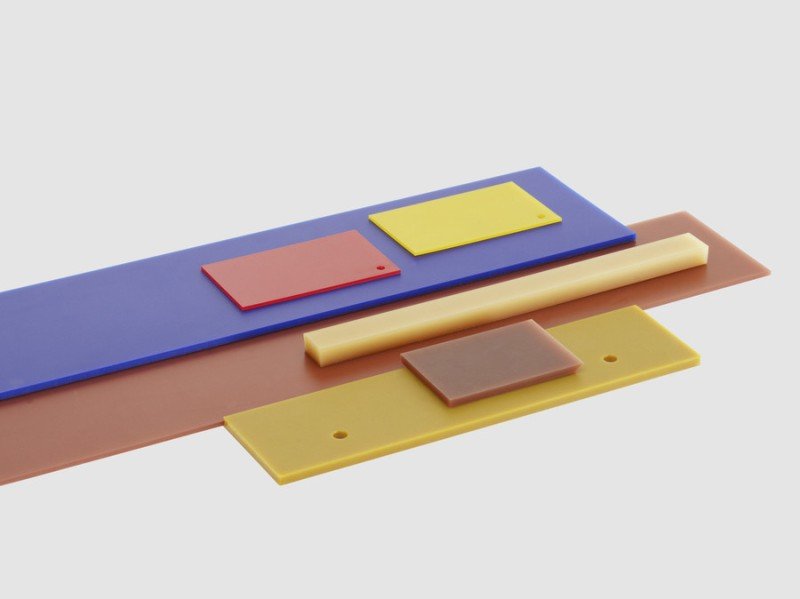Polyurethane - a special material
Rosén Innovation COM |29/03, 2023

Benefits of Polyurethane as a Material
Polyurethane is a versatile material that has become increasingly popular over the years due to its numerous benefits. In this article, we will explore the various advantages of polyurethane as a material and why it is used in so many industries. From its durability to its versatility, polyurethane has many characteristics that make it a superior choice for many applications.
Introduction
Polyurethane is a polymer that is formed by reacting a polyol with a diisocyanate. It is used in various applications, such as coatings, adhesives, and foam products. The properties of polyurethane can be tailored to meet specific needs, making it a popular choice in many industries. In this article, we will delve into the benefits of using polyurethane as a material.
What is Polyurethane?
Polyurethane is a synthetic polymer that is formed through a chemical reaction between a polyol and a diisocyanate. The resulting material is a versatile polymer that can be customized to meet specific needs. Polyurethane can be produced in various forms, including foams, coatings, adhesives, and elastomers.
Benefits of Polyurethane
Durability
One of the most significant benefits of polyurethane is its durability. Polyurethane is resistant to abrasion, impact, and punctures, making it ideal for use in applications that require a high degree of durability. Polyurethane can withstand extreme temperatures, making it suitable for use in harsh environments.
Versatility
Polyurethane is an incredibly versatile material that can be customized to meet specific needs. It can be produced in a wide range of hardness levels, from soft and flexible to hard and rigid. This versatility makes polyurethane suitable for use in a wide range of applications, from automotive parts to medical devices.
Resistance to Weather and Chemicals
Polyurethane is highly resistant to weather and chemicals, making it an ideal material for outdoor applications. It can withstand exposure to harsh weather conditions, including extreme temperatures, humidity, and UV radiation. Additionally, polyurethane is resistant to a wide range of chemicals, including solvents, oils, and acids.
Sound Insulation
Polyurethane is an excellent material for sound insulation. Its cellular structure can absorb sound waves, making it ideal for use in acoustic applications. Polyurethane foam is often used in the construction industry to reduce noise levels in buildings.
Thermal Insulation
Polyurethane is an excellent thermal insulator. It has a low thermal conductivity, which means that it can effectively prevent the transfer of heat. This property makes polyurethane foam an ideal material for use in insulation applications.
Comfort
Polyurethane foam is widely used in the furniture industry due to its comfort properties. It can be produced in various densities, providing different levels of comfort. Polyurethane foam is often used in mattresses, cushions, and upholstery.
Cost-Effective
Polyurethane is a cost-effective material compared to other polymers. It can be produced in large quantities at a relatively low cost, making it an attractive option for many applications.
Customization
Polyurethane can be customized to meet specific needs. It can be produced in various forms, including foam, elastomers, and coatings. Additionally, its properties can be tailored to meet specific needs by adjusting the chemical composition of the polyol and diisocyanate.
Eco-Friendliness
Polyurethane is an environmentally friendly material. It can be produced using renewable resources, and it can be recycled. Additionally, polyurethane foam can be produced using plant-based materials, reducing the need for petrochemicals.
Applications of Polyurethane
Polyurethane is used in a wide range of applications, including:
- Automotive parts
- Building and construction
- Furniture and bedding
- Packaging and insulation
- Sports and recreation
- Medical devices
In the automotive industry, polyurethane is used in various parts, including bumpers, dashboards, and seats. In the building and construction industry, polyurethane is used in insulation, roofing, and coatings. Polyurethane foam is used in mattresses, cushions, and upholstery in the furniture industry. It is also used in packaging to protect delicate items during transit. In sports and recreation, polyurethane is used in the production of equipment such as skateboard wheels, rollerblades, and balls. In the medical industry, polyurethane is used in the production of implants, catheters, and prosthetics.
Conclusion
In conclusion, polyurethane is a versatile material that offers numerous benefits for various applications. Its durability, versatility, resistance to weather and chemicals, sound and thermal insulation properties, comfort, cost-effectiveness, and customization make it an attractive choice for many industries. Polyurethane can be tailored to meet specific requirements, making it a superior material compared to other polymers.
FAQs
- Is polyurethane environmentally friendly?
Polyurethane can be produced using renewable resources, making it an eco-friendly option. Additionally, its durability and resistance to weather and chemicals mean that it can last longer than other materials, reducing the need for replacements.
- Is polyurethane safe for use in medical devices?
Polyurethane is widely used in the medical industry due to its biocompatibility and resistance to fluids and chemicals. However, it is essential to ensure that the polyurethane used in medical devices is free of harmful chemicals and has been tested for safety.
- How is polyurethane foam used in the construction industry?
Polyurethane foam is often used in the construction industry as insulation material due to its excellent thermal and sound insulation properties. It can also be used for sealing gaps and cracks in buildings.
- Can polyurethane be recycled?
Polyurethane can be recycled, but the process is challenging and expensive. However, some companies have developed innovative ways of recycling polyurethane, such as converting it into fuel or using it as a raw material for other products.
- What industries use polyurethane?
Polyurethane is used in various industries, including automotive, construction, furniture, medical, and packaging. Its versatility and customization options make it suitable for many applications.
